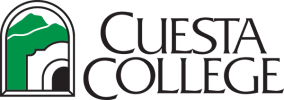
Program Summary
PARALEGAL - Associate in Arts
DESCRIPTION
The Cuesta College Paralegal Degree and Certificate Program is designed to provide students with the knowledge and skills needed to become a successful paralegal. A paralegal is a trained specialist who performs a wide variety of legal tasks, including legal research, assisting with clients, assisting with case investigation, assisting with witness preparation, assisting at trial, law office management, and legal document preparation in a variety of legal and business settings.
ASSOCIATE DEGREE AND CERTIFICATE OF ACHIEVEMENT
The Paralegal Program offers both an Associate of Arts (AA) degree for those students who do not already possess a college degree and a Certificate of Achievement (CA) primarily for those students who do already possess a college degree. The Paralegal AA degree may be earned by successfully completing the Paralegal coursework plus the Cuesta College general education requirements. The Paralegal CA may be earned by successfully completing the Paralegal coursework minus the general education coursework required for the AA degree.
CAREER AND TRANSFER OPPORTUNITIES
The primary goal of the Cuesta College Paralegal Degree and Certificate Program is to offer a comprehensive program where students will acquire paralegal skills that will prepare them for a variety of different career opportunities, including employment in law offices and with other legal service providers, as independent contractors ( such as legal document assistants), in local, state, and federal agencies, and in businesses (such as banking, finance, insurance, real estate, and corporate legal departments) where paralegal skills are desirable. In addition, the Paralegal AA degree provides a sound foundation for transfer to baccalaureate pre-law and legal studies programs and is also an excellent first step for students considering law school.
The Cuesta College Paralegal Degree and Certificate Program fully complies with the California Business and Professions Code requirements for employment as paralegals and legal document assistants. The Paralegal Program is also designed to help students prepare for NALA (National Association of Legal Assistants) certification and is a first step towards CACPS (Commission for Advanced California Paralegal Specialization) certification as well.